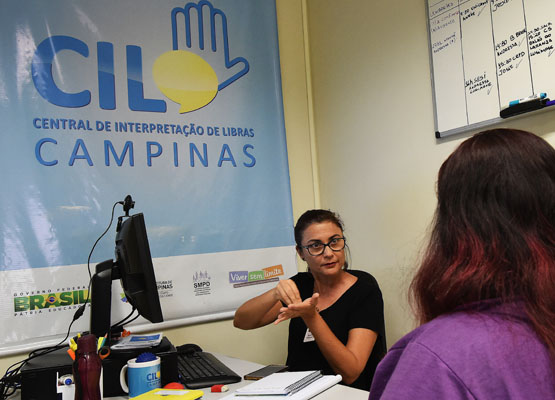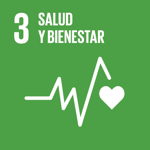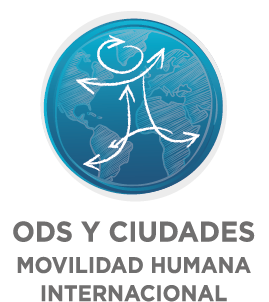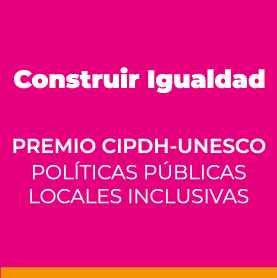
- Region
- Latin America and the Caribbean
- Range of Demographic Size
- 1,000,000 inhabitants or more (metropolis)

3.1 By 2030, reduce the global maternal mortality ratio to less than 70 per 100,000 live births.
3.2 By 2030, end preventable deaths of newborns and children under 5 years of age, with all countries aiming to reduce neonatal mortality to at least as low as 12 per 1,000 live births and under-5 mortality to at least as low as 25 per 1,000 live births.
3.3 By 2030, end the epidemics of AIDS, tuberculosis, malaria and neglected tropical diseases and combat hepatitis, water-borne diseases and other communicable diseases.
3.4 By 2030, reduce by one third premature mortality from non-communicable diseases through prevention and treatment and promote mental health and well-being.
3.5 Strengthen the prevention and treatment of substance abuse, including narcotic drug abuse and harmful use of alcohol.
3.6 By 2020, halve the number of global deaths and injuries from road traffic accidents.
3.7 By 2030, ensure universal access to sexual and reproductive health-care services, including for family planning, information and education, and the integration of reproductive health into national strategies and programmes.
3.8 Achieve universal health coverage, including financial risk protection, access to quality essential health-care services and access to safe, effective, quality and affordable essential medicines and vaccines for all.
3.9 By 2030, substantially reduce the number of deaths and illnesses from hazardous chemicals and air, water and soil pollution and contamination.
3.a Strengthen the implementation of the World Health Organization Framework Convention on Tobacco Control in all countries, as appropriate.
3.b Support the research and development of vaccines and medicines for the communicable and non-communicable diseases that primarily affect developing countries, provide access to affordable essential medicines and vaccines, in accordance with the Doha Declaration on the TRIPS Agreement and Public Health, which affirms the right of developing countries to use to the full the provisions in the Agreement on Trade-Related Aspects of Intellectual Property Rights regarding flexibilities to protect public health, and, in particular, provide access to medicines for all.
3.c Substantially increase health financing and the recruitment, development, training and retention of the health workforce in developing countries, especially in least developed countries and small island developing States.
• Inter-American Convention on the Elimination of all Forms of Discrimination Against Persons with Disabilities
Convention on the Rights of Persons with Disabilities (CRPD).
Universal Declaration of Human Rights (UDHR).
International Covenant on Civil and Political Rights (ICCPR).
International Covenant on Economic, Social and Cultural Rights (ICESCR).
Additional Protocol to the American Convention on Human Rights in economic, social and cultural rights (San Salvador Protocol).
Summary
The Central de Intermediação em Libras (CIL—Libras Intermediation Central) allows people with hearing disabilities to communicate in Brazilian Sign Language (Libras) at any public service in the city of São Paulo through video chat 24/7.
Persons with hearing disabilities may download the CIL-SMPED application, designed in conjunction with the Municipal Secretariat of People with Disabilities (SMPED), through the CIL website. The application is available for free for Android and IOS systems.
Through the use of the application, persons with disabilities may also make emergency calls to health care and security services. In addition to attending to the demands of the community of people with hearing disabilities, this effort is also directed to municipal officials, who may download the application on their smartphones and use it whenever they need to assist a citizen who can only communicate through Libras.
Use example: if a hearing-impaired patient has a medical appointment and the health professionals at the hospital cannot communicate in Libras fluently, this person may be able to make a video call to the CIL, where a Libras/Portuguese interpreter will translate what the patient is trying to say.
Implementation Date:
Start: 04 / 6 / 2018
End: End: Currently in force
Awareness and/or information campaigns
Creation of entity/plan/programme
- Email: flaviofenolio@prefeitura.sp.gov.br
- Web: https://www.prefeitura.sp.gov.br/cidade/secretarias/pessoa_com_deficiencia
- Telephone: +55 11 3913-4012
- Social Network:
Instrumentos

3.1 By 2030, reduce the global maternal mortality ratio to less than 70 per 100,000 live births.
3.2 By 2030, end preventable deaths of newborns and children under 5 years of age, with all countries aiming to reduce neonatal mortality to at least as low as 12 per 1,000 live births and under-5 mortality to at least as low as 25 per 1,000 live births.
3.3 By 2030, end the epidemics of AIDS, tuberculosis, malaria and neglected tropical diseases and combat hepatitis, water-borne diseases and other communicable diseases.
3.4 By 2030, reduce by one third premature mortality from non-communicable diseases through prevention and treatment and promote mental health and well-being.
3.5 Strengthen the prevention and treatment of substance abuse, including narcotic drug abuse and harmful use of alcohol.
3.6 By 2020, halve the number of global deaths and injuries from road traffic accidents.
3.7 By 2030, ensure universal access to sexual and reproductive health-care services, including for family planning, information and education, and the integration of reproductive health into national strategies and programmes.
3.8 Achieve universal health coverage, including financial risk protection, access to quality essential health-care services and access to safe, effective, quality and affordable essential medicines and vaccines for all.
3.9 By 2030, substantially reduce the number of deaths and illnesses from hazardous chemicals and air, water and soil pollution and contamination.
3.a Strengthen the implementation of the World Health Organization Framework Convention on Tobacco Control in all countries, as appropriate.
3.b Support the research and development of vaccines and medicines for the communicable and non-communicable diseases that primarily affect developing countries, provide access to affordable essential medicines and vaccines, in accordance with the Doha Declaration on the TRIPS Agreement and Public Health, which affirms the right of developing countries to use to the full the provisions in the Agreement on Trade-Related Aspects of Intellectual Property Rights regarding flexibilities to protect public health, and, in particular, provide access to medicines for all.
3.c Substantially increase health financing and the recruitment, development, training and retention of the health workforce in developing countries, especially in least developed countries and small island developing States.
• Inter-American Convention on the Elimination of all Forms of Discrimination Against Persons with Disabilities
Convention on the Rights of Persons with Disabilities (CRPD).
Universal Declaration of Human Rights (UDHR).
International Covenant on Civil and Political Rights (ICCPR).
International Covenant on Economic, Social and Cultural Rights (ICESCR).
Additional Protocol to the American Convention on Human Rights in economic, social and cultural rights (San Salvador Protocol).
Location
- Region
- Latin America and the Caribbean
- Range of Demographic Size
- 1,000,000 inhabitants or more (metropolis)
Contact details
- Email: flaviofenolio@prefeitura.sp.gov.br
- Web: https://www.prefeitura.sp.gov.br/cidade/secretarias/pessoa_com_deficiencia
- Telephone: +55 11 3913-4012
- Social network:



